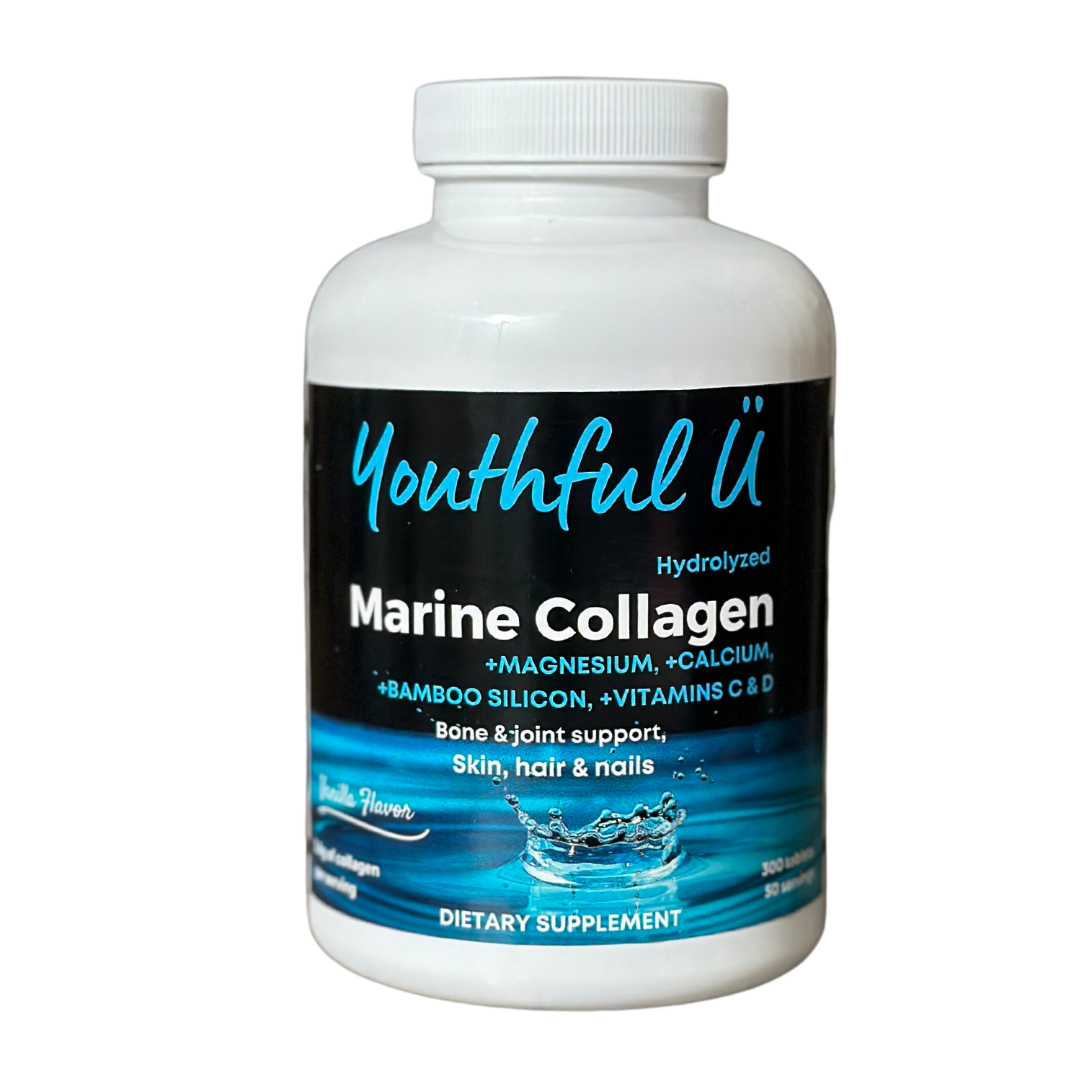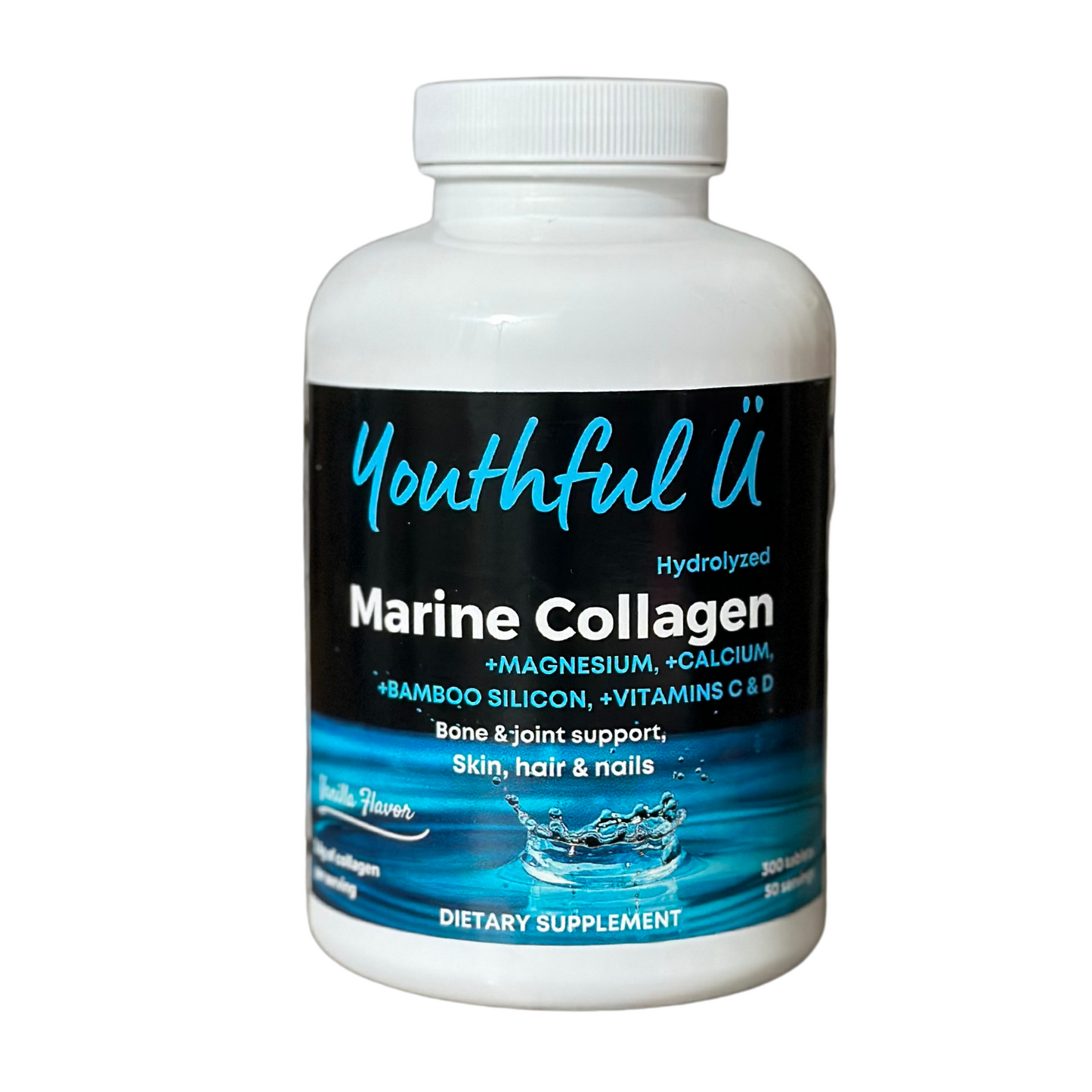Vitamins play a crucial role in various bodily functions, and their interaction with collagen can impact its synthesis and effectiveness. Here are some reasons why vitamins are essential when considering collagen:
- Vitamin C (Ascorbic Acid): Vitamin C is a key co-factor in the synthesis of collagen. It plays a vital role in the hydroxylation of proline and lysine amino acids, which are essential for the formation and stabilization of collagen molecules. Without adequate vitamin C, collagen synthesis is impaired, leading to the development of scurvy and compromised connective tissues.
- Vitamin D: Vitamin D is important for calcium absorption and bone health. It helps regulate calcium levels in the body, which is crucial for the mineralization of collagen in bones.
- Magnesium: Magnesium is a co-factor for many enzymes involved in protein synthesis, including the synthesis of collagen. Enzymes that facilitate the conversion of vitamin D into its active form, which is necessary for calcium absorption and bone health (important for collagen in bone structure), also require magnesium.
- Muscle Function: Collagen is a major component of connective tissues in muscles. Magnesium is essential for muscle function, including muscle contraction and relaxation. Proper muscle function is crucial for the support and maintenance of connective tissues.
- Bone Health: Magnesium is vital for bone health, and it works in conjunction with calcium and vitamin D to support bone density. Collagen provides a framework for mineralization in bones, and magnesium helps regulate the balance of minerals within the bone matrix.
- Calcium: Calcium is a key mineral required for the mineralization of bones. Collagen provides the structural framework for bones, and calcium phosphate minerals are deposited within this framework to give bones their strength and hardness. The combination of collagen and calcium provides the structural integrity of bones.
- Joint Health: Collagen is a major component of connective tissues in joints, providing support and elasticity. While calcium is not a direct contributor to joint tissue, maintaining proper bone health through calcium intake indirectly supports overall joint health, as bones provide essential support for joints.
- Teeth Health: Both collagen and calcium are important for the structure and health of teeth. Collagen is present in the connective tissues surrounding teeth, and calcium is a major mineral in tooth enamel. Together, they contribute to the strength and integrity of teeth.
While these vitamins are essential for collagen synthesis and maintenance, it's important to note that a balanced diet that includes a variety of nutrient-rich foods is the best way to ensure you get the necessary vitamins. In some cases, people may choose to take vitamin supplements to complement their diet, but it's important to do so under the guidance of a healthcare professional to avoid potential overdoses and adverse effects. If you are considering collagen supplements or any other dietary supplements, it's advisable to consult with a healthcare provider to ensure they align with your individual health needs and conditions.







